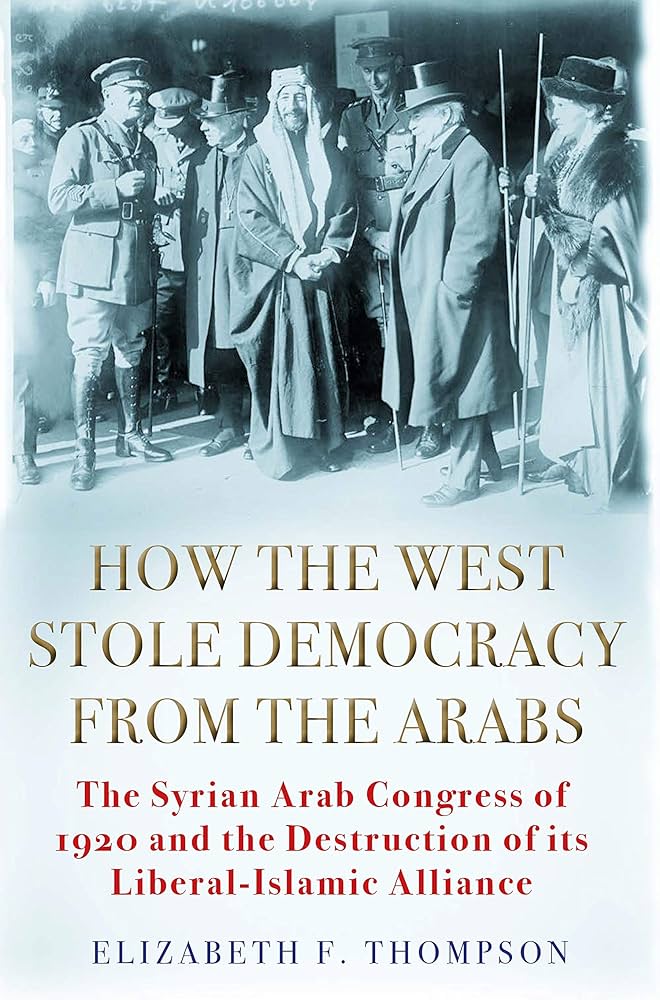|
How the West Stole Democracy from the Arabs: The Syrian Congress of 1920 and the Historic Liberal-Islamic Alliance
By Elizabeth F. Thompson Published in 2020 496 Pages Thibault’s Score: 2/5 I quit reading this book after the first chapter because it has all of the red flags of bad history books. First, the author is a Washington DC academic. Second, she is trying to prove a point rather than tell a story. Third, the point she is trying to prove is that there was a political alliance between pro-democracy liberal muslims and some Islamic clerics in the aftermath of World War One. Books that try to argue for something, rather than tell a good story, are always boring. Also, I get the sense from her language (although I may be wrong, because I didn’t read further) that “democracy” and “liberal” are actually codewords for leftist or socialist. I don’t doubt the historicity of her claims, but I probably would interpret the facts differently. Thompson’s mind-blowing revelation is that within Islam, there is a leftist-pro democracy strain. This revelation is completely obvious and banal to me - because I have traveled to the Middle East and been studying Islamic history for three years. Most of her arguments seem like they will focus on refuting the stereotype that all Muslims are regressive religious fanatics, and that this leftist faction is - indeed - real. She also joyfully explains that many of these are influenced by native ideas, rather than foreign ideas. Sadly, I would agree with her on this point. Indeed, there have been many ancient groups of Islamic proto-socialists. Many caliphates created welfare states in the years before their decline which they referred to as “the House of Money.” Many interpret Zakat as coercive economic redistribution rather than a voluntary donation. Factions such as Azariqa Kharijites or the Sufi dervishes can be seen as proto-socialist groups. By contrast, others such as the Ibadis or Mutazila can be seen as proto-libertarian capitalists. Islam is not homogenous. The struggle between leftism and freedom has a very long history within Islam. I have met many “muslim” World Bank economists and Hijabi feminists over the years. These nominal Muslims agree with all of the political ideas promoted by our liberal and leftist ruling class. Ironically, I would disagree with Thompson only insofar as I see these “moderate” and “modern” Muslims as my enemies; and the “radical” “regressive” religious Muslims as my allies. To summarize: this book's lessons and history are obvious. I don’t like the author’s background (Washington DC academic) and I hate the writing style.
0 Comments
Leave a Reply. |
Thibault SerletMost of my articles are book reviews, but I also write about many other topics. Archives
December 2023
Categories |

 RSS Feed
RSS Feed